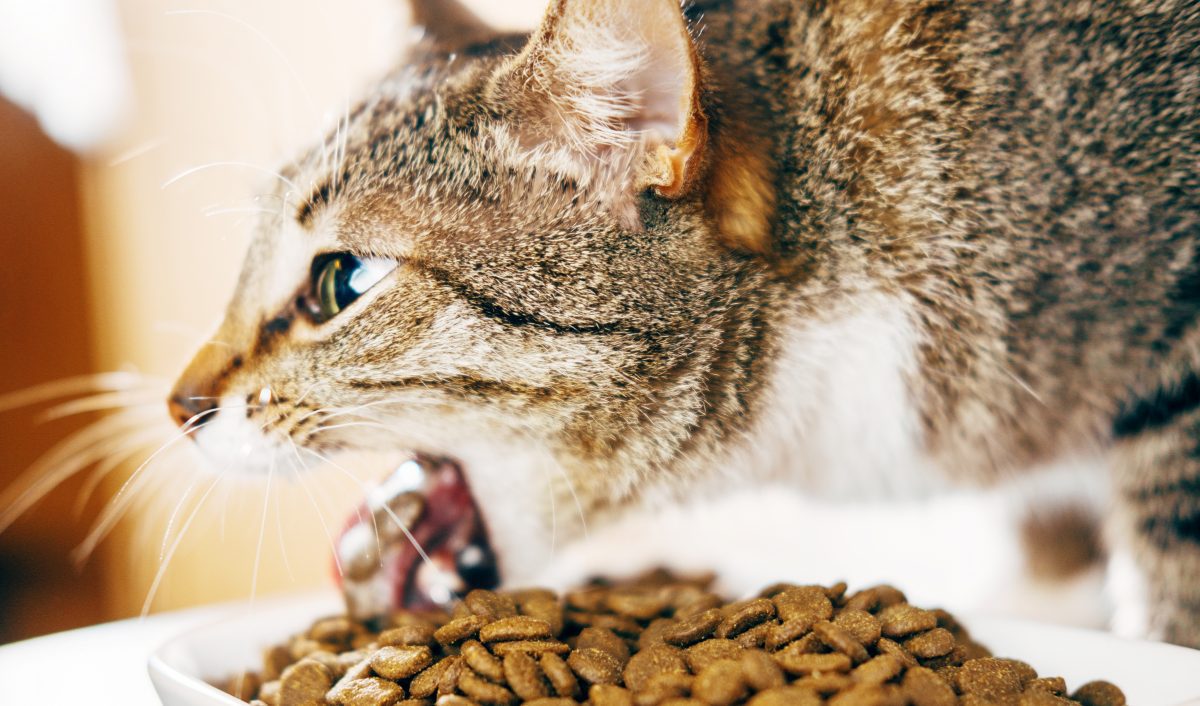
Why Does My Cat Vomit?
27 Mar 2020.
Owners will often worry when they see their cat vomit. But before you panic, it’s worth considering some of the common causes as to why your cat is vomiting.
Table of contents
Common causes of vomiting in cats
Hairballs are a common cause for cats vomiting
Because cats are extremely good groomers they often swallow a lot of their own hair. If your cat vomits up what appears to be a lot of fur and saliva this is what is known as a hairball. It is their body’s natural way of removing fur from the stomach. In order to help limit the amount of cat fur swallowed it is a good idea to brush and groom your cat regularly to remove excess fur, particularly in long haired cats. In some cases, a specialist diet or paste for cats can help pass hairballs more easily through the digestive tract.
Regurgitation after eating cat food
Some cats will vomit almost straight after a meal. This will look like undigested food, as it has not had time to be broken down yet. This is a common issue in cats who behaviourally eat extremely fast and bolt their food.
Ways of reducing this are to:
- Offer smaller, more frequent meals throughout the day.
- Trial a puzzle or slow feeder so that your cat has to work for the food and cannot bolt down their food quickly.
- Always ensure cats are fed separately from other cats/pets in the home to remove the sense of competition. They are naturally solitary eaters and dislike eating with others.

Eating something cats probably shouldn’t
Some cats will eat the strangest and sometimes the most unpleasant things. Dead animals and spoilt food are top of this list and can commonly cause a cat to vomit. So long as your cat bounces back quickly after vomiting up the offending material then just keep a close eye on them to make sure they remain bright and well hydrated. If you suspect they’ve ingested a toxic substance then please consult your vet immediately.
What are symptoms of nausea in cats?
Nausea is a sensation that accompanies or precedes vomiting. If your cat is feeling nauseous then they will most probably also feel quite unwell. These signs usually indicate that they are probably about to vomit:
- Avoiding the food bowl and refusing to eat
- Hiding
- Lethargy
- Seeking out a cool spot
- Eating grass
- Lip smacking
- Drooling
- Yowling (usually just before they vomit) and common with hairballs
When should I be worried about my cat vomiting?
If your cat becomes unwell or vomits multiple times in quick succession, you should give your vet a call for advice. Severe, acute vomiting can be caused by serious underlying issues and can quickly result in dehydration and electrolyte imbalances that need to be corrected.
Chronic vomiting can also be a concern. This is where your cat has vomited regularly and consistently for a number of days with no signs of improvement. They may also have a reduced appetite as a result of the condition.
If your cat has not eaten for more than 36 hours, you should take them to see a vet. Cats can suffer from serious food aversion issues if they do not eat for a significant period of time.
Why does my cat always seem to vomit when I am away?
Very occasionally vomiting can be attributed to stress due to changes within the home, such as going away or changes of routine. This stress may manifest as gastric changes such as vomiting and diarrhoea. To limit the likelihood of this happening it is important to leave clear instructions so that your cat sitter can keep your cats routine and familiarise themselves with your cat’s habits before you go away.

- #catcare
- #cathealth
- #catinaflat
- #catstress
- #catvomit
- #vomittingcat


